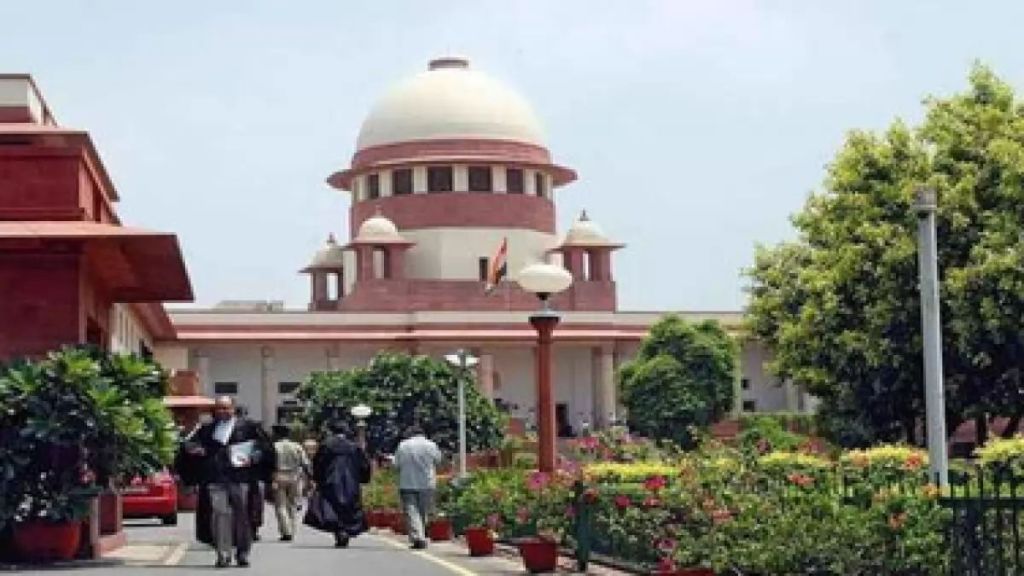The central government on Friday assured the Supreme Court that it will adhere to the timelines for processing names recommended by the Collegium for appointments as judges to constitutional courts. Attorney General R Venkataramani, appearing for the Centre, informed the top court that 44 of the 104 names recommended by the High Court Collegiums which are pending with the government will be processed within the next two-three days.
“All efforts are being made to conform to the timelines (as laid down by the Supreme Court)”, Attorney General for India R Venkataramani told a bench of Justices Sanjay Kishan Kaul and Abhay S Oka.
The Centre’s stand in the Supreme Court signals a climbdown in an ongoing confrontation with the top court on the issue of appointments to the Supreme Court and high courts. The Supreme Court has lately been openly critical of the Centre for “sitting on names” recommended by the Collegium for appointments to higher courts. The Centre has also questioned the Collegium system of appointments, suggesting that it is opaque and does not sit well with democracy.
While hearing the matter last month, the top court had said the collegium system of appointment of judges is the law of the land and comments against it are “not well taken”. It had observed that any law declared by it is “binding” on all stakeholders and the collegium system must be followed.
The bench also enquired about the five names recommended by the Collegium for elevation as judges of the apex court. “Would your lordships defer this for a little while? I have some inputs given to me but I may have some difference of opinion on that,” the Attorney General told the bench.
The bench observed, “In so far as the pending five recommendations for elevation to this court are concerned, the Attorney General requests for a deferment as he says he is looking into the matter.” At the outset, Venkataramani told the bench that timeline laid down by the apex court should not be deviated from and all efforts are being made to conform to those timelines.
“Attorney General submits that he has instructions that the government will adhere to the timelines as provided in the judgement. It is towards that objective that he submits that out of the 104 recommendations made by the collegium of high courts pending with the government, 44 are likely to be processed and sent to the Supreme Court by the weekend,” the bench noted.
The top court, which was hearing a matter relating to an alleged delay by the Centre in clearing the names recommended by the collegium for appointment as judges to constitutional courts, has posted the matter for further hearing on February 3.
The apex court collegium, headed by Chief Justice of India D Y Chandrachud, had last month recommended five judges, including Justices Pankaj Mithal and Sanjay Karol, the chief justices of high courts of Rajasthan and Patna, for elevation as judges of the apex court.
“The Supreme Court Collegium, in its meeting held on December 13, 2022, has resolved to recommend elevation of the following chief justices/judges of the high courts, as judges in the Supreme Court: 1. Justice Pankaj Mithal, Chief Justice, Rajasthan High Court 2. Justice Sanjay Karol, Chief Justice, Patna High Court, 3. Justice P V Sanjay Kumar, Chief Justice, Manipur High Court, 4. Justice Ahsanuddin Amanullah, Judge, Patna High Court and 5. Justice Manoj Misra, Judge, Allahabad High Court,” said a statement uploaded on the apex court’s website last month.
The plea in the apex court has alleged “wilful disobedience” of time frame laid down to facilitate timely appointment in the apex court’s April 20, 2021 order.
In its April 2021 order, the apex court had said the Centre should appoint judges within three-four weeks if the Collegium reiterates its recommendations unanimously.
Coming out with timelines to facilitate the process, it had said the Centre should proceed to make appointment immediately after the apex court Collegium recommends the names and if the government has any reservations on the “suitability or in public interest”, it may send it back to the Collegium with the specific reasons for reservation recorded.
(With PTI inputs)


